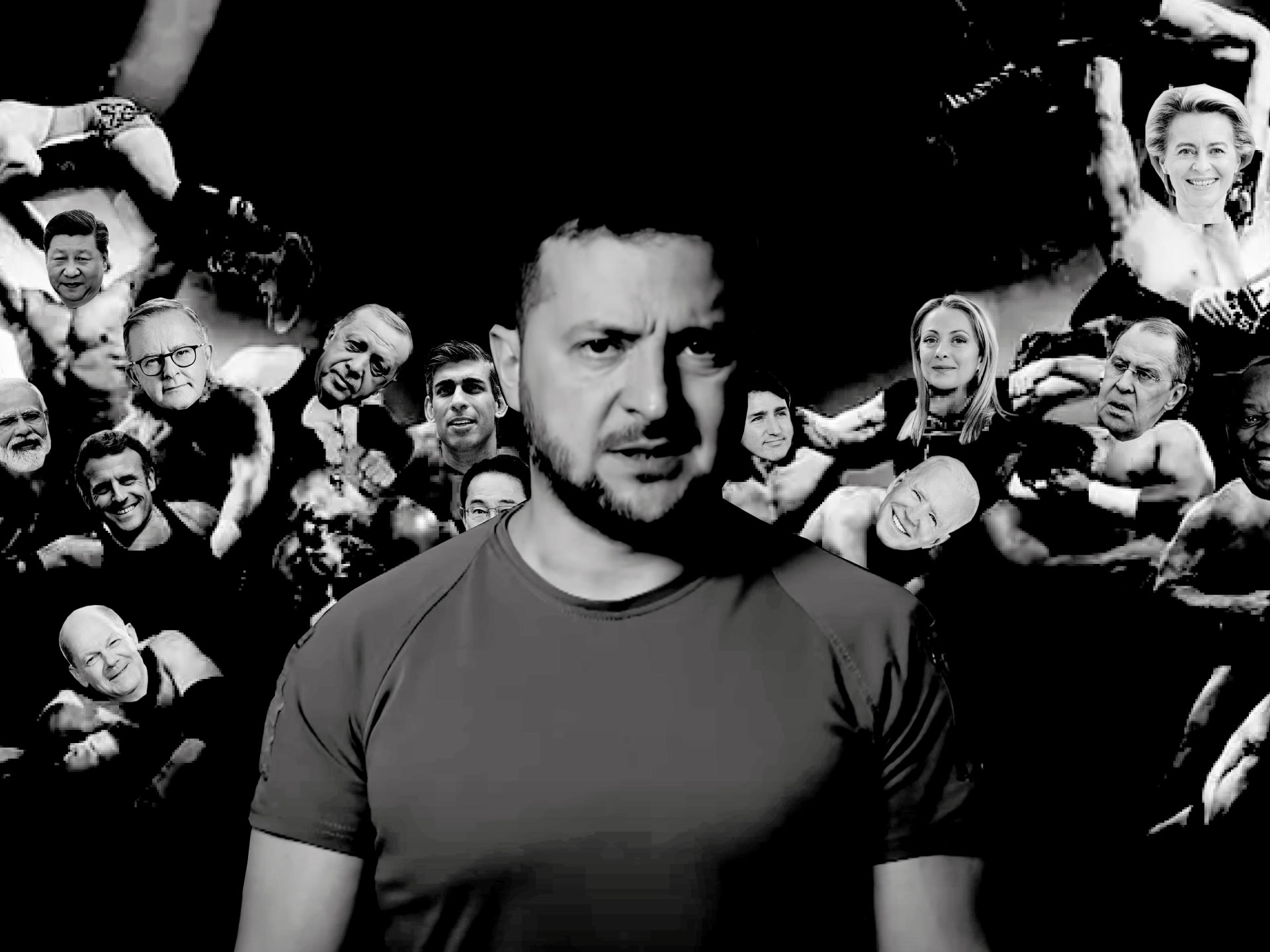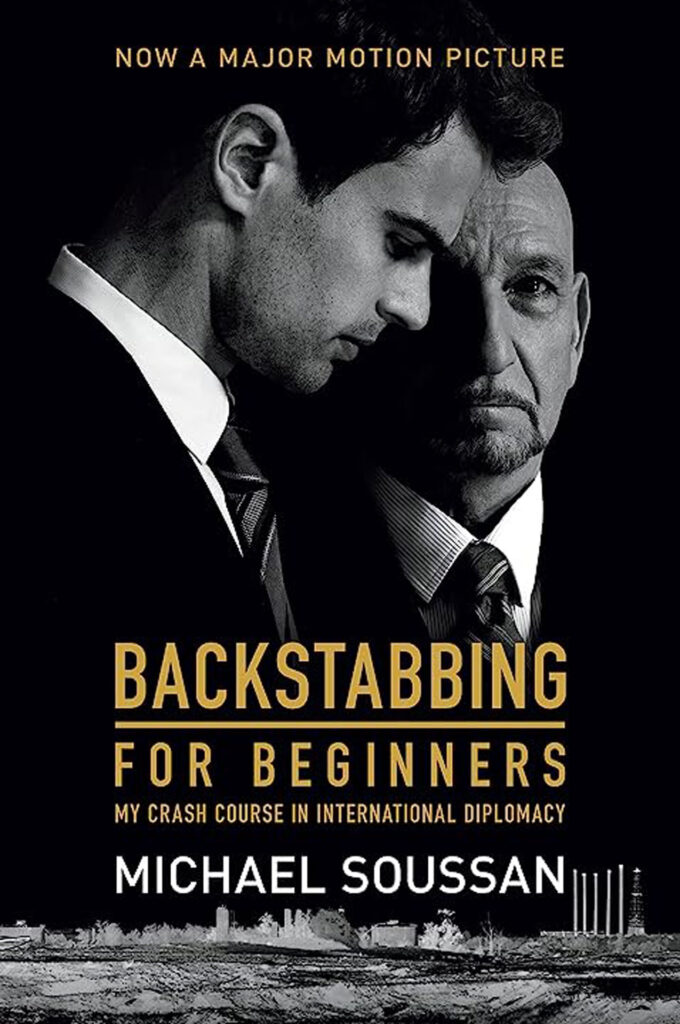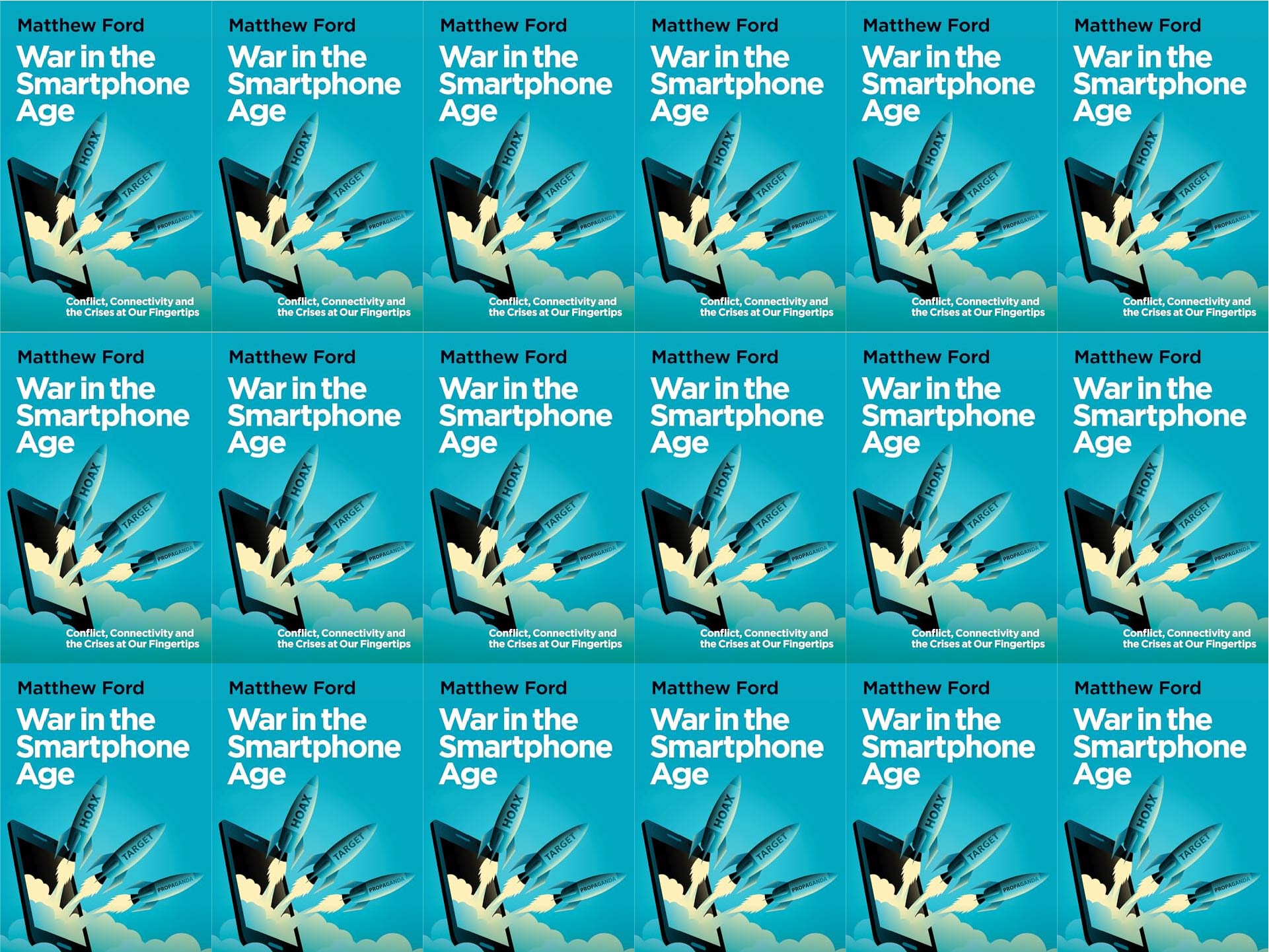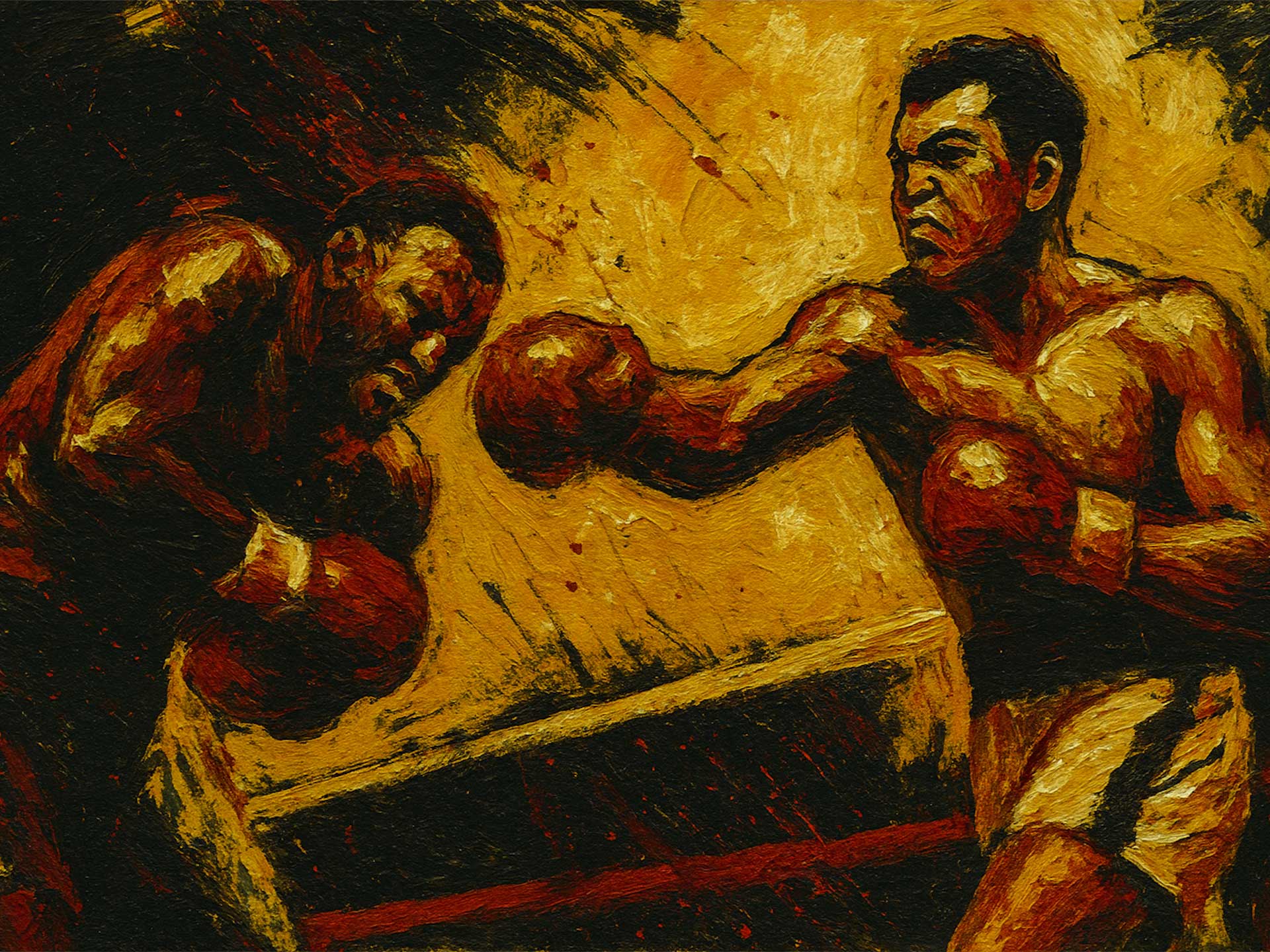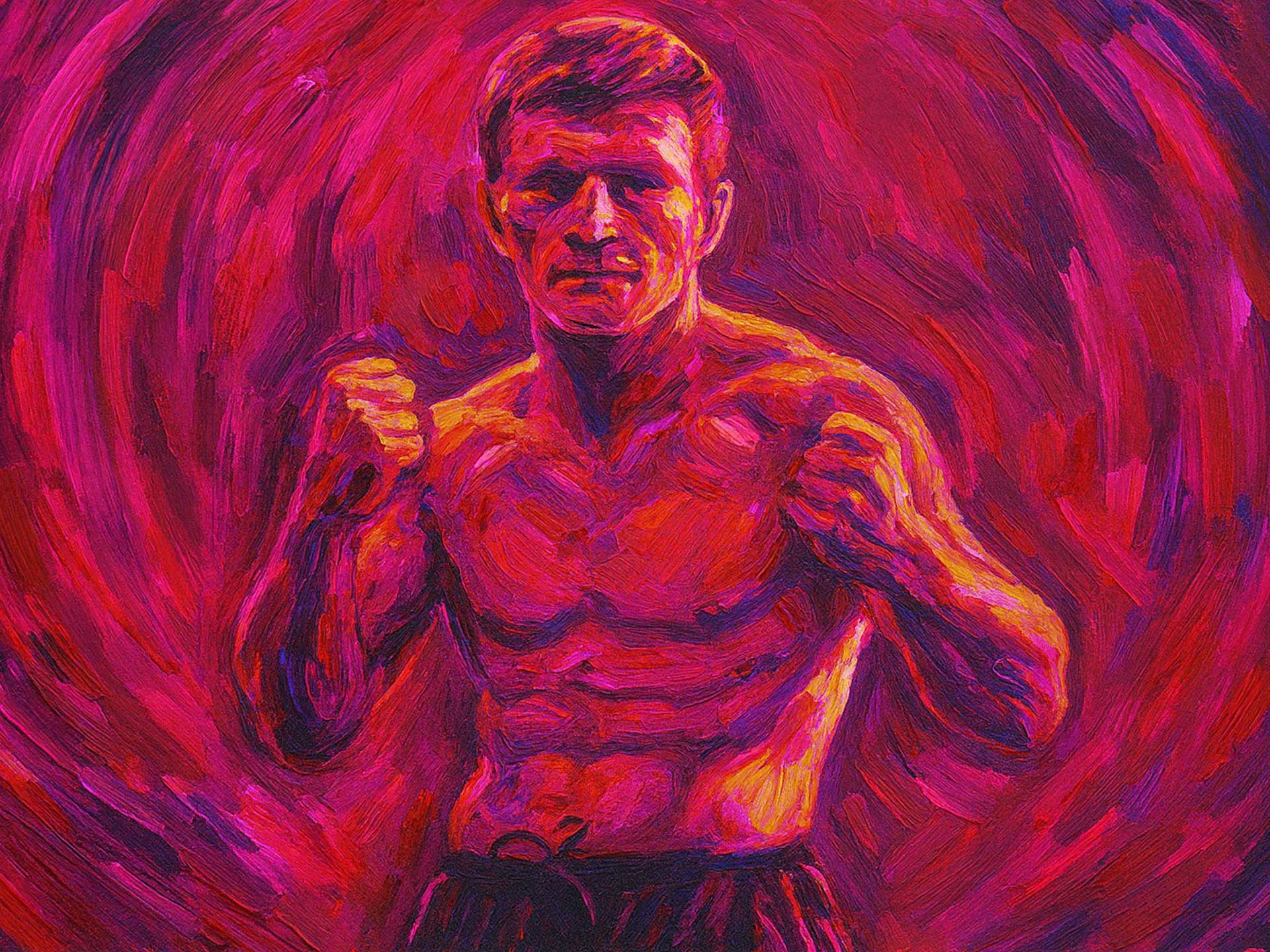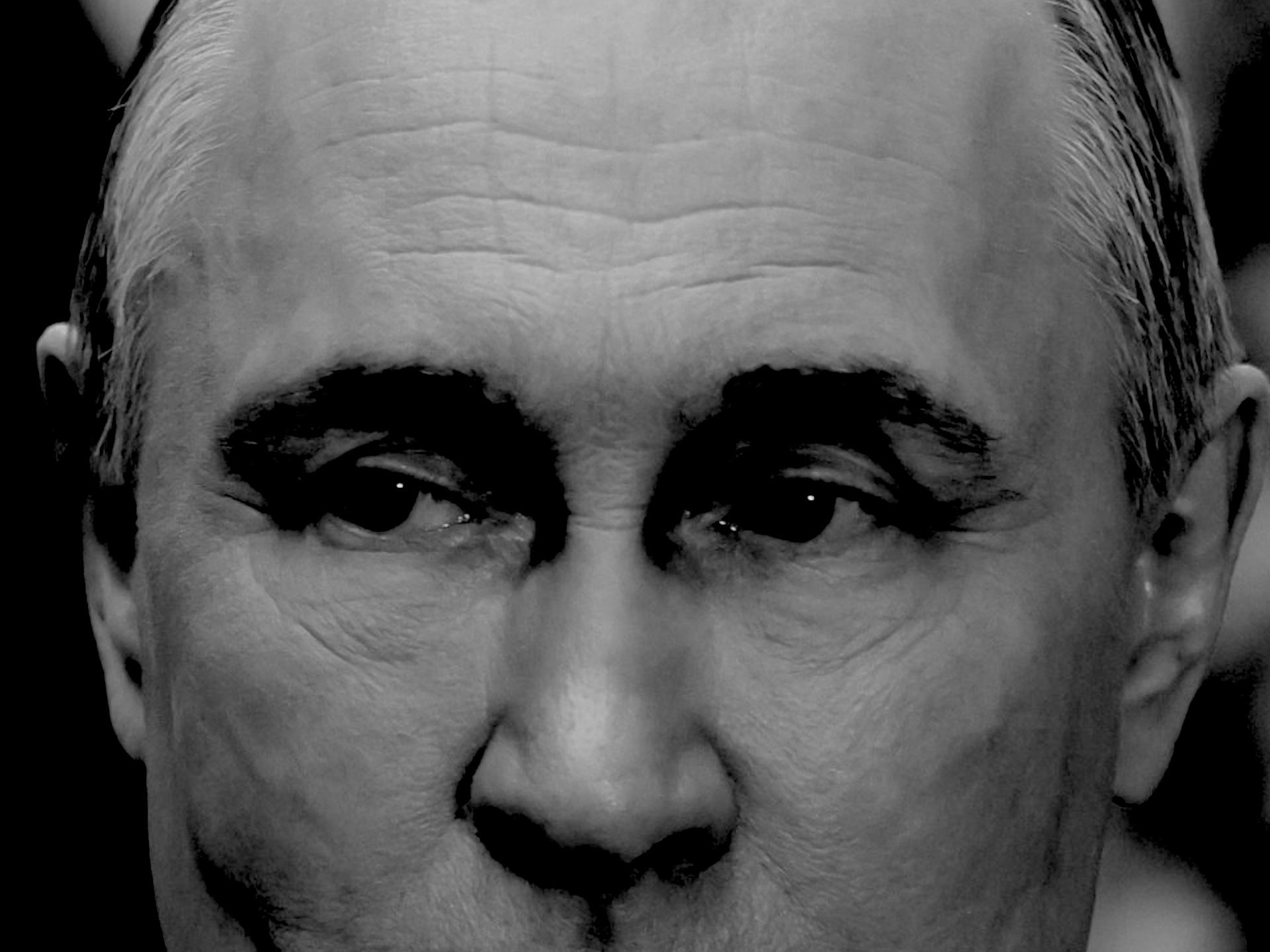When I co-wrote and edited a book of essays during my university days in 1994, called Security of Eastern Europe: The Case of Ukraine, I could not possibly have imagined that the individual around whom the democratic world would ultimately unite, in a clear stance against the global advance of tyranny, would come from Ukraine. In fact, the question was barely up for debate: The leader of the free world was the President of the United States, of course! But we are no longer living in 1991, when the United States emerged from the Cold War as the undisputed leader of what we took to calling a ‘unipolar world.’
Soon after the collapse of the Soviet Empire, America’s full military might was put on display in the Persian Gulf, where it decimated the (formerly feared) ‘one-million-man army’ of Saddam Hussein. President Bush Senior even went so far as to proclaim a ‘New World Order.’ The subtext was clear: America would use its hegemonic position to enforce greater respect for international law. The underlying hope was that capitalism, under US global hegemony, would automatically lead to an expansion of democracy, as long as the United States and its allies could put out ‘regional fires’ where possible, and maintain what would in effect be a Pax Americana.
The epilogue to this climax of confidence reads like a series of blows to America’s military, economic and even moral claims to leadership, when it comes to advancing, or defending, democracy supporters around the world, to the extent that, today, we are forced to answer the question with another question:
By what measure?
By what measure can the United States and, by implication, its president, be called the ‘leader of the free world’ today?
After seeing America’s own democracy nearly fail its voters, under the weight of an organised campaign of blatant lies culminating in the storming of the US Capitol on January sixth, 2021, and witnessing the incredibly embarrassing lengths to which a defeated President Trump tried to cling to power, it could emphatically not be said that this man, who departed the White House without ever conceding defeat in an election that saw him lose by six million votes, even believed in the merits of freedom, much less democracy, to begin with.
In the book I Alone Can Fix It: Donald J Trump’s Catastrophic Final Year by Carol Leonnig and Philip Rucker, US Chairman of the Joint Chiefs, Gen. Mark Milley states that Trump had worked methodically toward creating a “Reichstag moment”, in which, like Adolf Hitler in 1933, he would manufacture a crisis in order to swoop in and rescue the nation from it.’ When Trump famously declared, in advance of the elections, that he would only recognise its results if he was acknowledged as its winner, Milley was preparing for the worst. The highest-ranking US military leader spoke to associates about the threat of a coup. ‘They may try, but they’re not going to fucking succeed,’ Milley told his deputies, according to Leonnig and Rucker. ‘You can’t do this without the military. You can’t do this without the CIA and the FBI. We’re the guys with the guns.’
Okay … but ‘We’re the guys with the guns’ is a bit of a stretch from the motto that is imprinted on every symbol of the American republic: E pluribus unum, Latin for ‘Out of many, one.’ Nevertheless, in 2020, it simply had to do.
The incoming Biden administration tried its best to calm the democratic world’s nerves. ‘America is back’ he proclaimed. However, his declared desire to re-join the Paris Climate Accords was quickly obfuscated by the complete fiasco that was America’s incompetently planned withdrawal from Afghanistan. The longest war in American history came to an abrupt, humiliating end, prompting an essay in the influential magazine The New Yorker: ‘Does the Great Retreat from Afghanistan Mark the End of the American Era?’ While this landmark piece by Robin Wright may have been hyperbolically titled, it nonetheless struck a nerve. As Wright argued, ‘The humiliating U.S. retreat from Afghanistan is now part of an unnerving American pattern.’
In fact, predictions of a more chaotic world that would put US leadership to the test had already begun to emerge by the time of the Balkan wars in the mid-1990s. We were indeed looking at new fault lines, and entirely different types of conflicts than we had grown used to. It was no longer about Communism versus Capitalism, which we already knew. Having supported capitalist despots across the world during the Cold War, we had seen that autocrats were not the least bit hindered by capitalism per se, as long as they could corrupt it to their benefit. So, what was driving global conflicts and the new pattern of alliances that emerged along with it? It is as though political scientists felt useless without the ability to come up with a ‘global paradigm’.
Articles like Samuel P. Huntington’s ‘The Clash of Civilizations’ were hotly debated, but in the elite academic world of political science (in which this author spent his formative years) a consensus began to emerge. While the wording ‘clash of civilisations’ was unnecessarily provocative (and possibly self-fulfilling), we understood that the conflicts we were looking at were increasingly sectarian, rooted in ethnic and religious identity politics that had long laid dormant, as if frozen by the Cold War. In contrast to Bush’s vision of a ‘New World Order’, an increasing range of observers warned instead of a new world disorder, which would pose challenges that America was ill prepared to control.
The frightening thing about sectarian conflicts is that they follow the same logic that ignited World War II, where the entire legitimacy of the Third Reich rested on the (fabulist but effective) self-proclaimed superiority of the German ‘Aryan’ race. It justified war, and genocide, on an unprecedented scale. An example is the conflict in the former Yugoslavia, in which the UN was utterly humiliated, crushing leaders’ hopes of relying on the world organisation as an effective multilateral institution to preserve international peace. The massacre of 8000 men and boys, which occurred inside a ‘UN declared Safe Haven’, sealed the question of whether the world was witnessing genocidal ethnic cleansing in the former Yugoslavia. It was 1995. I personally interviewed General Philippe Morillon, who was in charge of UN peacekeepers in the former Yugoslavia at the time of the massacre. Because of Russian influence at the UN Security Council, and lethargic bureaucrats at UN Headquarters, his troops did not have clear rules of engagement. They were supposed to fire only if fired upon; at the same time, they were also supposed to protect civilians. The problem with that dual mission was that they could not actually defend civilians with force when necessary. ‘No soldier should ever be sent into an active warzone with such orders,’ General Morillon complained to me. He was disgusted by the UN, which he felt had morally betrayed him and his men by sending them in to keep a peace that did not exist on the ground, and then denying them the operational authority to engage in peace-enforcement. Upon returning home to the Netherlands, the Dutch detachment of UN peacekeepers, who were forced to sit idly by while the very civilians they were sent to protect were massacred right under their noses, were so ashamed that they ceremoniously ripped apart their blue berets.
The world turned to the United States. Even though the Balkans unrest was primarily a European problem, and Europe’s largest democracies were sufficiently well armed to be able to intervene with the force necessary to strong-arm all sides to the negotiating table, a serious rift between France and Germany made EU leadership impossible. Leadership requires clear unity of purpose. We shall see, when we wrap up the analysis, how the ability to articulate and embolden such unity of purpose may in fact be the most critical measure by which to identify where true leadership rests at a given time and situation.
As in both the world wars of the twentieth century, ultimately the United States was obliged to intervene, injecting the potential use of overwhelming force into the equation, and finally settling what had begun as a complicated conflict rooted in historical grudges that predated America’s own birth as a nation. Nonetheless, US intervention was critical to ending the Balkan conflict, which might otherwise have continued for years. Then-US President Bill Clinton appointed Richard Holbrooke, a forceful negotiator who, through a combination of air power and special operations, finally brought all sides to the table. This meeting took place at a US Air Force base, which symbolically gave its name to the Dayton Peace Accords of 1995. Like them or not, one must still acknowledge that Presidents Bush Senior and Clinton were ‘leaders of the free world’ in their time.
The title is not without its blemishes. While laudable in its intent, America’s intervention in Mogadishu, Somalia, ended in disaster; its withdrawal was equally traumatising, and is often cited when analysts look for ‘patterns’ in the rise or fall of America’s power. Many Somalis were simply left to starve. With the subsequent genocide in Rwanda, which resulted in 800,000 people hacked to death while foreign peacekeepers scrambled to evacuate, it became increasingly clear that the world’s democracies would only intervene selectively, in defence of their national interest, which typically favours access to oil rather than the expansion of democracy or the protection of human rights.
American leadership under Clinton included two additional efforts, which, while hailed as successes in their time, proved to be in vain. Using the credible threat of force, Clinton had halted North Korea’s efforts to nuclearise; however, across subsequent administrations, North Korea finally succeeded in acquiring nuclear weapons. Furthermore, the much-hailed ‘Oslo Peace Accord’ did not stop the Israeli Arab conflict from degenerating repeatedly into violent conflagrations.
Still, the idea that the US President remained the undisputed title of ‘leader of the free world’ endured, in part because of the unprecedented global force projection that followed the attacks of September 11, 2001. However, the reaction to this mass-scale terrorist attack, that of a traumatised nation led by an equally traumatised President, led to the over-extension of American power. In addition, the Bush administration’s understandable but nonetheless brash approach to diplomacy put serious rifts between leading European powers like France and Germany on public display in the lead-up to the invasion of Iraq.
Moreover, the incredible boost in military spending, including on private mercenary groups like Blackwater (which still exists under a variety of confusing and ever-changing names) brought to mind the fateful warning of President Dwight D. Eisenhower, who warned that any president not familiar with the military might easily be manipulated into decisions that would enrich arms dealers at the expense of servicemen and quite possibly the interest of democracy itself.
President Bush Jr. came to power unable even to pronounce the word nuclear properly (so it became ‘newkillar’) – and while he had served in the National Guard, he had no experience of complex command and control. In his farewell address to the nation, on January 17, 1961, Eisenhower warned that the nation should ‘guard against the acquisition of unwarranted influence … by the military–industrial complex.’ He went on to offer an ominous prediction: ‘The potential for the disastrous rise of misplaced power exists and will persist.’ It is telling that the man who had served as Supreme Allied Commander, overseeing ‘D-Day’, waited until his last day in office to raise this subject with the American public. Had it just been an oversight? Or was the great Eisenhower conscious that certain truths are dangerous to speak aloud, even for the ‘leader of the free world’? If anything, Ike’s prophetic words remind us that the question at stake – the question of what true leadership of the free world actually means, and where it rests – cannot be analysed through the simplistic prism of partisan politics (which tend to paint Democrats as ‘doves’ and republican as ‘hawks’ in matters of foreign policy).
Advisors guided Bush, including vice-president Dick Cheney and National Security Advisor Condoleezza Rice, who came back to politics fresh from generously paid stints at companies like Halliburton and Texaco. Thus, initially the Pentagon conceived the Iraq war. Soon enough Bush found himself trying to arbitrate an internal power struggle between the Pentagon on the one hand and an alliance composed of the CIA and the State Department on the other. All these institutions jousted for position; this ‘war within the war’ left America completely unprepared for the arduous task of nation building, which was implied in the final articulation of its war missions. Talk of spreading democracy came without a realistic plan to achieve such an aim within a foreseeable timeframe.
Bush’s successor, President Barack Obama, had campaigned on the need to ‘get the boys home’ from what had (inevitably) become intractable wars in both Iraq and Afghanistan. The measure of success had become unclear to the politicians, the generals, and the public alike. Ideally, America would have left behind sustainable democracies in both countries. Today, only Iraq still stands a chance of democratic survival, on the condition that its neighbours Iran and Syria are weakened to the point where they can no longer sabotage the very real democratic aspirations of civilians in Iraq, a country I worked with closely and visited three times, before and after the war.
While popular at home and abroad, President Obama inherited two wars that offered no easy way out, short of complete humiliation. Obama was a charismatic leader, but the direction of his leadership did not reassure US allies and certainly not the governments in Iraq and Kabul. The starkest test of Obama’s Foreign Policy chops came in 2013, when Syrian president Bashar al-Assad ignored Obama’s publicly vaunted ‘red line’ and began using chemical weapons against civilians in contested urban zones. Obama had already been very tepid in his support for democracy activists who rallied across the Middle East during the so-called Arab Spring. He was even less supportive of Iranian street protesters during the so-called ‘Green Revolution’, a failed uprising that was met with viciously violent suppression in Iran. By the time of the second Iranian uprising in 2023, sparked by the brutality of Iran’s despised ‘Morality Police’, Obama finally expressed some regret for not having been more supportive of Iranian protesters during his own presidency. His aloof and unconcerned appearance with regard to the street-struggle for democracy in the Muslim world was not his proudest moment.
In his defence, Obama did (this year) finally offer an explanation on this score, suggesting, in self-criticism, that his administration might well have been ‘overthinking’ its response to the popular uprising against Iran’s extremist, terrorising regime, because his advisors were more interested in reaching a nuclear deal with that country’s leadership than with expressing support for the fundamental rights of its citizens. On balance, this smells more of calculated realism than of Wilsonian idealism.
The Syrian government’s use of chemical weapons forced Obama to act, but he did so reluctantly, authorising only symbolic ‘pinprick’ air strikes that were meant to ‘send a message’ rather than rain down dissuasive punishment on the Syrian despot. In the very same speech in which he announced these insignificant strikes, he declared loud and clear that America ‘[was] not the world’s policeman’ and would no longer seek to oust dictators, for fear that it would inherit only intractable civil wars.
Obama’s speech on the symbolic date of September 11, 2013, was paradoxical. It projected a lack of clarity of purpose, ending in a statement that can hardly be called clear or resolute: ‘… when, with modest effort and risk, we can stop children from being gassed to death and thereby make our own children safer over the long run, I believe we should act.’
Having made it absolutely clear that the US would not send ‘boots on the ground’, the US intelligence community went on to ensure that America did exactly that, because it would have been too costly for America to be absent where Russia and the most radical of Islamic extremists were dominant. That being said, America’s only intervention consisted of supplying the only competent (and democratically inclined) Kurdish Peshmerga forces with air support in what came to be known as ‘over the horizon force projection’ (why use a short expression when a longer one can do) – a token act that obfuscated the fact that, even in retreat, the US was forced to go back on its word or risk alienating the only reliable allies it had left in the area, namely the Kurds, who were the sole organised force both capable of defeating ISIS in street-to-street combat and willing to incur the losses … because they were fighting for their very survival in the territory of their ancestors.
Fast forward to today: running on fumes of hope, the Biden administration is seizing on a completely unforeseen opportunity to strengthen not only NATO in the ‘West’ but its core alliances in the Eastern theatre as well – proving Ukrainian president Volodymyr Zelenskyy right in stating that his people were fighting for more than their own freedom, indeed for the cause of freedom ‘across the world.’
Zelenskyy’s steadfastness transformed what might well have been Ukraine’s – and Europe’s – ‘darkest hour’ in decades, when he turned down a last-ditch American offer to flee his country and set up a government in exile. In his now famous reply to the American offer to exfiltrate him at a time when, according to intelligence sources, his own person was the target of at least five assassination plots, Zelenskyy reportedly said, quite simply, ‘I need ammunition, not a ride.’ The quote went around the world faster than Russian tanks could move toward Kyiv; a year later, NATO members and the United States have slowly but surely given in to almost every demand coming out of Zelenskyy’s mouth.
Today, even his image rouses world parliaments to raucous bi-partisan applause. World leaders appear to elbow each other out the way for a selfie with the man in the green shirt. However, Zelenskyy is not one to be swayed by ceremony. Without being particularly eloquent in English, Zelenskyy manages to call out the hypocrisy of nations and institutions that fail to choose sides in what is, admittedly, a critical turning point for the democratic world.
Only a few years before, the newly elected Zelenskyy had found himself the subject of what can only be called an attempt at extortion by a sitting US President. It is hard to deny the joint US intelligence finding that Vladimir Putin actively influenced the outcome of the 2016 election in favour of Trump. While President, Trump rewarded his good ‘friend’ in the Kremlin a thousand times over, including, most alarmingly for Europe, during his visit to NATO in May 2017, when he famously refused to re-affirm Article V of the NATO treaty, which stipulates that other NATO allies must come to the aid of an ally under attack if the article is invoked. Ironically, the only country to date that has ever invoked Article V was the United States itself, after the 9/11 attacks.
Trump was everything but the leader of the free world. And while we cannot in good conscience use Biden’s advanced age to question his firmly rooted belief in democracy, his administration appears to be playing catch-up on many fronts, including the Ukrainian one. The Biden government accedes to Zelenskyy’s demands for ‘enough arms to win the war’ with a trickle that increases and expands only reluctantly, in tandem not with a clear policy but with Zelenskyy’s viral popularity, which most world leaders hope will rub off on their own poll numbers if they are seen to be at his side.
This dynamic reflects clearly on who, today, is the leading force in cementing the resolve of the democratic world across its many alliances. Sometimes the most reluctant warriors are the best democracies can hope for, and former comedian Volodymyr Zelenskyy embodies that role, today.
The accession of Sweden and Finland to the NATO alliance was unthinkable before Ukraine made a stand against Russia and called out the hypocrisy of the UN as a credible institution to advance or defend the cause of democracy. This year on April 1st, when it was Russia’s turn to take the presidency of the UN Security Council, Zelenskyy called out the moment as ‘the worst April Fool’s Joke in History.’ The Ukrainian leader’s words will continue to reverberate through time no matter what happens next. He is, in this author’s opinion, at the time of this writing, the uncontested leader of the free world (even if he remains the most vulnerable to physical attack). Courage and democracy appear to go hand in hand.
So does forward thinking. When looking at the architecture of the international system today, by Zelenskyy’s measure, we lack a global organisation that is truly dedicated to democracy. Interestingly, Senator John McCain proposed one in 2007, but it was immediately dismissed by the world’s diplomatic elite at the time, and went nowhere. The late Senator McCain, a former war prisoner whom Trump deemed wise to call a ‘loser’, had included in his campaign a call to create a global organisation that included only democracies among its members, and could therefore credibly be depended on to advance the cause, when and where possible.
In proposing to formalise a global democratic alliance, Senator McCain did not offer an entirely new idea. Nor was the idea a product of ‘Wilsonian idealism.’ In truth, McCain’s proposal was first suggested back in 1795 by Immanuel Kant in his pamphlet ‘On Perpetual Peace’. His very first condition for a reliable international system required, in the language of his day, that ‘The civil constitution of each state shall be republican.’ By this, he meant that only governments that represented the will of their people could conceivably form an effective international organisation to keep the peace. Back in Kant’s era, there were hardly any democracies around. The French Revolution had taken an extremist turn and the Napoleonic Wars would soon result in the declaration of an empire in its stead. So, Kant stressed that the next best thing to a global organisation would be a system of alliances between republics that represented the will of the people.
That is very much the conclusion one draws from Zelenskyy’s outspoken criticism of the UN as an organisation. Diplomats need not take it personally – he is simply pointing out the obvious. If the UN actually worked, Russia’s attack would lead to that country’s expulsion. There are provisions in the UN charter to expel a state that breaks the rules; unfortunately, in practice, it is very hard to expel a permanent member of the Security Council, especially without the support of China. The fact that the Ukrainian leader is the only outspoken critic of the inherent hypocrisy that fuels our existing UN-centred global disorder will go down in history, not just as an act of bravery but as an act of intellectual and political leadership that will no doubt influence the future of the free world.
All of those who argued that the prospect of NATO expansion is to blame for the war should logically conclude today that the same argument applies to Finland. To be sure, during the Cold War, Russia intimidated Finland’s aspirations to independence and freedom, to the extent that a name was coined for Finland’s awkward predicament: ‘Finlandisation’ described the de-facto reality that Finland did everything it could to avoid alienating the USSR, including not joining NATO and only engaging seriously with the EU after the fall of the Soviet Union.
If Zelenskyy had folded … if he had accepted that his country should remain at the (corrupt) mercy of Russia’s despot, it is unlikely that we would have seen Finland and Sweden rush to join NATO, thereby reinforcing the alliance of democracies, with ripple effects reaching as far as Korea, Taiwan and Japan, all which have insisted on strengthening their own democratic alliances with the US and Europe.
If China is even hinting at the possibility of brokering a peace between Putin and Ukraine (we would say ‘Russia and Ukraine’ if the Russian people verifiably shared their un-chosen leader’s appetite for war), it may be because Xi Jinping is seeing the effect this war is having on democratic alliances across the globe. This is inconvenient for China because it interferes with its own hegemonic ambitions and ultimately threatens its own system with a pro-democracy uprising.
From a geopolitical point of view, in 2022–23, one unflinching and clear voice has made a measurable impact in strengthening democratic alliances across the globe. The bittersweet reality is that the man who most merits the title of ‘leader of the free world’ has little to promise his own people in the foreseeable future other than blood, sweat and tears.
If these words sound familiar, perhaps they can remind us that, short of a decisive effort to help Ukraine defeat and repel Russia, Western democracies may come to regret dragging their feet when the call for help came, from a country that desperately wants to live in freedom and in peace, in our time.

